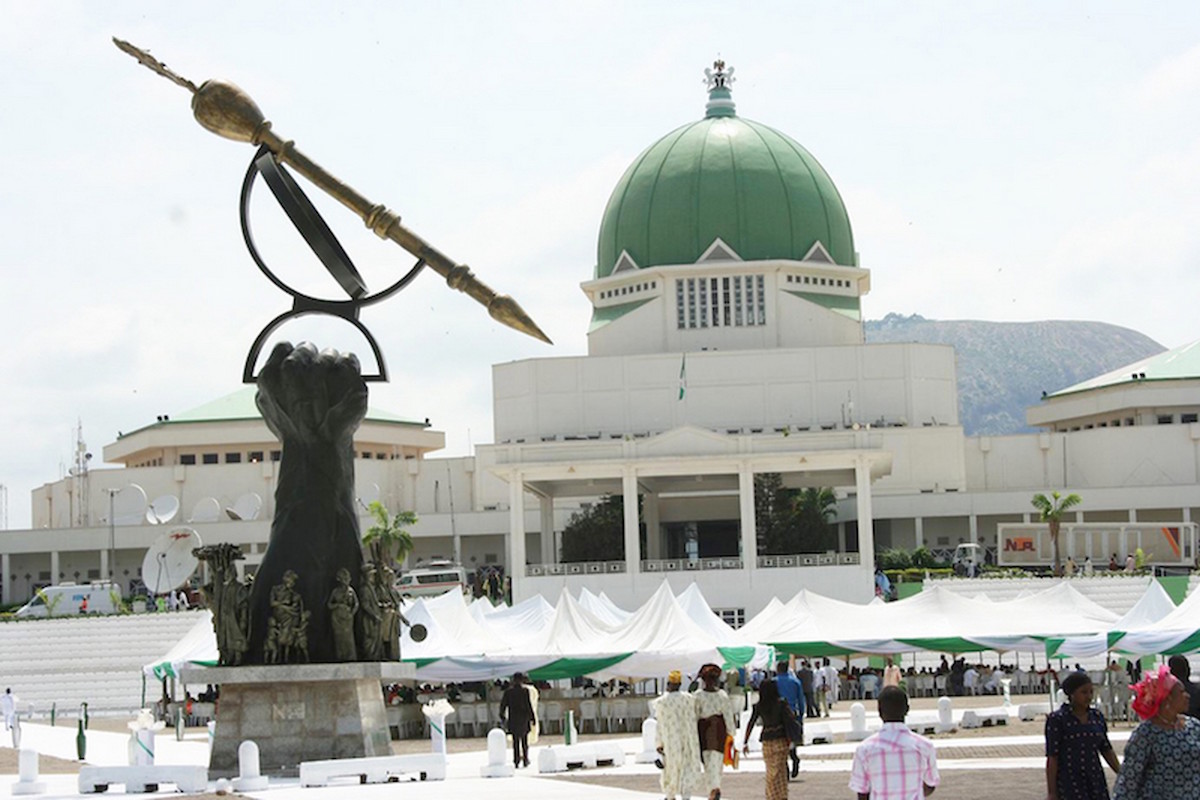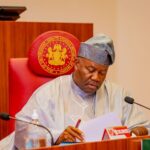Nigerians disagree on so many things. The need for change, howsoever defined, is not one of them.
Everyone or almost everyone wants change, probably because the status quo is either not working for them or is perceived as not working at all for anybody. The driving force is the growing feeling of despondency, a feeling that is stoked by rapid population growth and the economy’s decreasing capacity to meet individual and aggregate demand.
- People looking for regime change behind #EndSARS violence – Northern Governors
- Nigeria has changed beyond recognition
The high rate and the unique pattern of population growth are asymmetrical to the economy’s generally unimpressive performance. Nigeria’s population in 1960 was 45.2 million. Growing at the rate of between 2.5 and 3.0 percent, it rose to 166 million in 2012. It is projected to rise to 212 million in 2018. By 2050, Nigeria, with an estimated population of 400 million, is likely to be among the top five most highly populated countries in the world. It is a largely youthful population, with approximately 52 percent of the 2016 figure falling under the age of 30 years. This puts an extraordinary strain on the budget and on the economy’s job creation capacity.
Since the land area is fixed at approximately 923,768 square kilometers, aggregate population growth immediately translates into rising population density, increasing rates of urbanization, expanding human settlements with sparse amenities, swelling numbers of slum dwellers, spiking cases of criminality in inner-cities and poverty-stricken suburbs, as well as fierce competition for space, for jobs, and for earth’s resources.
Indeed, at the root of civil unrest in parts of Nigeria is a profound demographic crisis, a crisis fueled by the failure to apply a unanimously acceptable formula for arbitrating sharply divergent claims within an increasingly overcrowded space. The claims in need of arbitration include those relating to human settlements, agricultural and grazing land, industrial and commercial layouts, market stalls, and public highways. Already, rapid population growth has turned land into a contentious issue and created flashpoints across the country, especially, in Plateau, Kaduna South, Zamfara. The tension between population and space is particularly noticeable in increasing urban traffic gridlocks, intra-family land disputes, inter-clan boundary clashes, conflicts between “indigenes” and “settlers” (and between herdsmen and farmers), as well as tension and uprisings in resource-producing communities.
The demographic time-bomb would have been defused if the rate of economic growth had outstripped, or at least, matched, the rate of social mobilization. This is clearly not the case. The tension sparked by population growth and the unending struggle for space and for resources has been intensified by economic downturn. As the accompanying table shows, the Nigerian economy went into a nosedive from 2013 to 2017. It is also worth noting that the economy did not grow as fast as a few other Sub-Saharan African countries in 2017.
Table 1: Nigeria – GDP (USD billion)
2013
2014
2015
2016
2017
GDP (USD bn)
522
576
494
405
376
In terms of international competitiveness and per capita productivity, Nigeria lags behind less-populated countries like South Africa, Mauritius, Botswana, Egypt, Ghana and Swaziland. Its 2017 GDP per capita of $1,968.56 is measly when compared with Mauritius’s $10,547, Botswana’s $7,595, or South Africa’s $6,160. Whereas high technology accounted for between 5 and 7 percent of South Africa’s total manufactured exports, Nigeria could not boast of intermediate, much less, high, technology export.
Of dominant concern is the structure of the economy. Nigeria is to all intents and purposes a mono-cultural economy, one that relies mainly on the export of crude petroleum and a narrow range of primary commodities. The oil sector alone accounts for 90 percent of foreign exchange earnings and 80 percent of government revenue. This overwhelming dependence on oil puts Nigeria in a precarious position. It renders the economy susceptible to price fluctuations, sundry global pandemics, and, above all, unanticipated changes in technology. The rapid increase in the number of electric-powered vehicles, in particular, constitutes a threat that the economy has yet to take seriously. Whereas, the number of cars relying on batteries (instead of gasoline) stood at 109,720 worldwide in 2012, by 2017 it had risen to 1,928,000. At the very least, the economy needs to look beyond the windfall from resource extraction, and start in earnest to perfect its creative, inventive, and value-adding capacities.
The sluggish performance of the economy has, in any case, adversely affected Nigeria’s ranking on the human development index. With a low HDI score of 0.532 in 2017, Nigeria placed 24th in Africa and 157th in the world. It was outperformed by Seychelles (which came first in Africa and 62nd globally, with HDI of 0.797); Mauritius (2nd in Africa and 65th world-wide), Botswana (5th in Africa, 101st worldwide), and Gabon (7th in Africa, 110th worldwide). Nigeria is not even on the list of countries (like South Africa, Namibia, Ghana, eSwatini/Swaziland) with medium HDI scores in 2017. According to the 2018 Human Development Report, Nigeria placed a distant third on the list of countries with low HDI scores in 2017, coming after Tanzania and Zimbabwe.
In contrast to 1980 when the proportion of people below poverty line was 28.1 percent, by 2016, the percentage had risen to 60.21. In other words, 112 million out of a total population of 185,989,640 could not make ends meet in 2016. Economic liberalization might have brought productivity gains, but it has also translated into job-less growth, besides widening the gap between the rich minority and the chronically poor masses. Due to restricted income mobility, at least, 50 percent of those currently living in poverty, are likely to remain trapped there for the foreseeable future.
Nigeria ranks low in terms of access to police protection, expeditious and fair dispensation of justice; gridlock-free highways and rural infrastructure; food and nutrients; potable water; sanitation; basic health care; detoxification, rehabilitation and counseling of drug addicts; services geared towards promoting consistently high standards of primary, secondary and tertiary education; provision of disaster/emergency relief, and gainful employment.
Either due to shortage of resources or the continued application of cumbersome processes, the citizen rarely obtains quality service from government agencies. Public works projects (e.g. road and bridge construction) that should take weeks or months to complete often stretch to years, sometimes, decades. Crimes are unlikely to be promptly investigated, with the result that a substantial number of cases go cold and are then eventually closed, unsolved. Civil cases drag for decades in courts, with judgements rendered either when the litigants have lost interest or an interested party has died.
Graduates of secondary and tertiary institutions roam the streets for years in search of jobs. The odds of being employed are limited by the sheer number competing for vacancies and by the restrictions which macro-economic and fiscal imbalances impose on public and private investment. According to the National Bureau of Statistics, the proportion of unemployed Nigerians as at the third quarter of 2017 was 16.20 percent (meaning approximately 11.8 million were out of job). Between January and September 2018, an additional 4.07 million Nigerians were unemployed.
Youth unemployment is a particularly troubling phenomenon. In 2017, 43 percent of youths aged between 15 and 24 years were unemployed. Adults falling within the 25- to 44-year age bracket were not spared the pains of endless job-hunting, the few vacancies available going to only a minority with powerful or influential sponsors.
The social distress that accompanies sluggish growth and restricted (and rationed) access cannot but conspire to threaten the fabric of society. Contemporary Nigeria is under siege—a siege laid by small arms distributors, kidnappers, armed robbers, crooked SARS (Special Anti-Robbery Squad) personnel; ritual killers, drug traffickers, 419 scammers, arsonists and ethnic militias—partly because of the economy’s inability to meet the demands of a growing and restive population, and partly due to the capricious and inequitable ways of determining eligibility for various classes of public goods. Thus, youths that have no sponsors (and therefore no jobs) channel their energies elsewhere. They turn to crime, lend support to extremist causes, and join crowds rented for the purpose of spooking political opponents and threatening community peace.
Needless to add that unemployed youths also look for escape in psychogenic drugs which make them willing accomplices in the perpetration of violent crimes. As noted in a subsequent article, Nigeria’s security challenge is exacerbated by impaired access to police protection and to expeditious dispensation of justice. That corruption thrives in the police, and the judiciary, is by now incontestable. Corruption is as rife in the law enforcement and adjudication arms of government as it is endemic in the country as a whole. With regard to the police, corruption starts with the manner constables get selected for beats, and officers get posted to strategic commands. The cronyism that pervades high-level political recruitment also undermines the integrity and impairs the effectiveness of the law enforcement agencies.
We have so far identified the socio-economic forces behind the growing (but conflicting) demands for change. The next article attempts to answer the question why the challenges facing Nigeria—i.e., the challenges triggering or stoking the demand for change–have so far resisted solutions. Are these challenges beyond human capacity or are they designed to grow and multiply? Or is it possible that the challenges have been persistently misdiagnosed? These are questions that subsequent articles will try to answer.

 Join Daily Trust WhatsApp Community For Quick Access To News and Happenings Around You.
Join Daily Trust WhatsApp Community For Quick Access To News and Happenings Around You.


